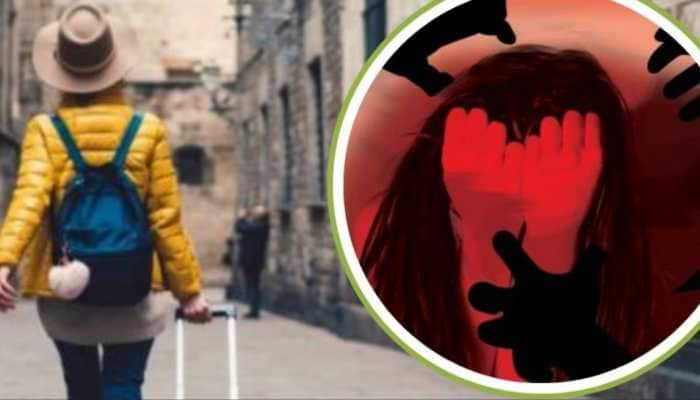Capitol riot case: Jury begins deliberating in Oath Keepers sedition trial
The last successful case was the prosecution of Islamic militants who plotted to bomb New York City landmarks. The defendants also face several other charges, including conspiracy to obstruct an official proceeding in Congress certification of Biden's 2020 election win
- Jurors began deliberating Tuesday in the January 6 Capitol riot case
- They have accused Oath Keepers founder Stewart Rhodes and four of his extremist group associates of a violent plot
Trending Photos
) Image Credit: ANI; Representational Image
Image Credit: ANI; Representational Image Washington: Jurors began deliberating Tuesday in the January 6 Capitol riot case accusing Oath Keepers founder Stewart Rhodes and four of his extremist group associates of a violent plot to stop the transfer of presidential power from Republican Donald Trump to Democrat Joe Biden. Federal prosecutors are asking the Washington, D.C., jury to convict the defendants of seditious conspiracy, a rarely used charge that carries up to 20 years in prison and can be difficult to prove. Prosecutors spent weeks showing jurors messages, recordings and surveillance video they say shows Rhodes, of Granbury, Texas, and his band of antigovernment extremists were prepared to take up arms to overturn Biden's election victory over Trump. Rhodes and two of his co-defendants, Thomas Caldwell, of Berryville, Virginia, and Jessica Watkins, of Woodstock, Ohio, took the witness stand and sought to downplay their actions and portray the riot as a spontaneous outpouring of election-fuelled rage instead of the result of a preconceived plot.
The others on trial are Kelly Meggs, of Dunnellon, Florida, and Kenneth Harrelson of Titusville, Florida. Besides seditious conspiracy, all five defendants also face other felony charges. If found guilty of seditious conspiracy, they would be the first defendants convicted of the Civil War-era offence at trial in nearly 30 years.
Also Read: New Pak COAS appointment - All is not well
The last successful case was the prosecution of Islamic militants who plotted to bomb New York City landmarks. The defendants also face several other charges, including conspiracy to obstruct an official proceeding in Congress certification of Biden's 2020 election win. Rhodes told jurors that there was no plan for the Oath Keepers to attack the Capitol and said his followers who went inside acted ‘stupid’
The jury will weigh the charges that the Oath Keepers were not whipped into an impulsive frenzy by Trump on Jan. 6, 2021, but travelled to Washington intent on stopping the transfer of presidential power at all costs. The riot was the opportunity they had been preparing for, prosecutors say. Rhodes' followers sprang into action, marching to the Capitol, joining the crowd pushing into the building and attempting to overturn the election that was sending Biden to the White House in place of Trump, authorities allege. Not true, the Oath Keepers argue.
They say there was never any plot, that prosecutors have twisted their admittedly bombastic words and given jurors a misleading timeline of events and messages. Hundreds of people have been convicted in the deadly attack, which left dozens of officers injured, sent lawmakers running for their lives and shook the foundations of American democracy. Now jurors in the case against Rhodes and his associates, for the first time, will need to decide whether the actions of any Jan. 6 defendants amount to seditious conspiracy a charge that carries both significant prison time and political weight.
Failure to secure a seditious conspiracy conviction could spell trouble for another high-profile trial beginning next month, of former Proud Boys national chairman Enrique Tarrio and other leaders of that extremist group. The Justice Department's Jan. 6 probe has also expanded beyond those who attacked the Capitol to focus on others linked to Trump's efforts to overturn the election. In the Oath Keepers trial, prosecutors built their case using dozens of encrypted messages sent in the weeks leading up to Jan. 6.
Stay informed on all the latest news, real-time breaking news updates, and follow all the important headlines in india news and world News on Zee News.
Live Tv







)
)
)
)
)
)
)
)
)
)
